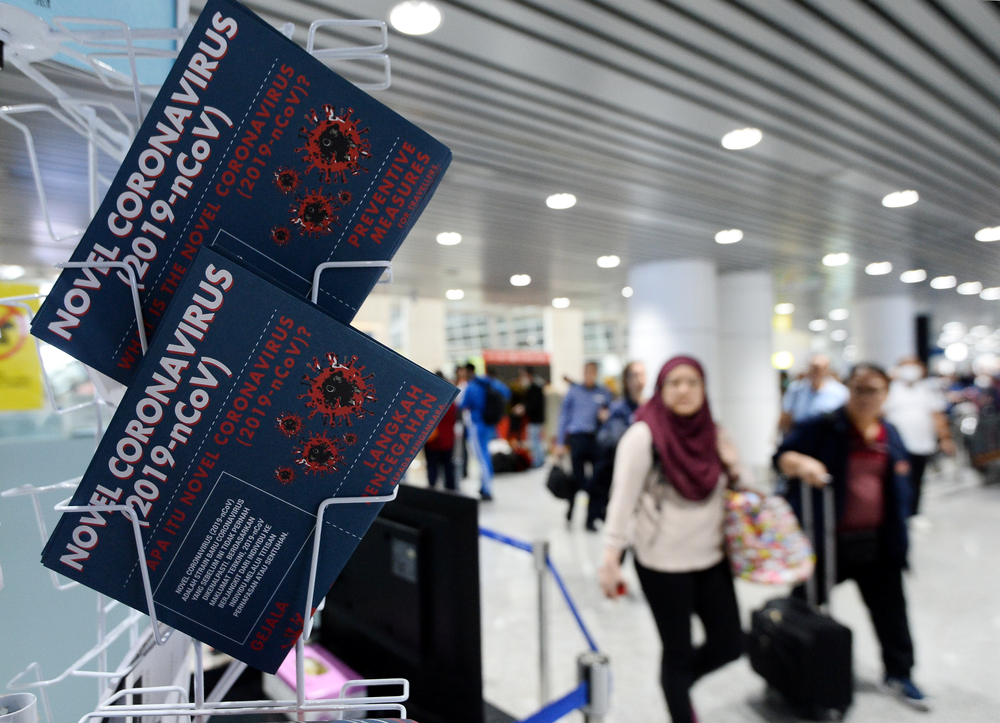Volunteers, refugees take care of healthcare workers as Malaysian hospitals gear up for more COVID-19 infections
KUALA LUMPUR - Healthcare workers are increasingly becoming the recipients of Malaysian generosity as the public embrace them as a symbol of defiance in the face of the COVID-19 pandemic.
Currently cases are manageable, Ahmad Munawwar Helmi told Salaam Gateway after finishing his shift in the emergency department of Sungai Buloh hospital on the outskirts Kuala Lumpur. In a matter of weeks or even days, it will be a very different picture.
Whether Malaysia manages to “flatten the curve” or not, heath workers like Ahmad Munawwar will be on the front line against the coronavirus. He is currently on a mission to help keep his colleagues’ spirits up by delivering them comfort food.
Ahmad and fellow doctors, nurses, clinical assistants and medical students have been carrying out outreach and relief work during disasters as volunteers in the Islamic Medical Association of Malaysia’s Response and Relief Team (Imaret). Top of Imaret’s list is making sure fellow health workers are well fed.
“Sometimes it’s difficult for health staff to get outside food, and all the cafeterias are closed. We provide them with food and snacks too so they can have something in between breaks.”
Imaret has already started distributing meals at several hospitals in the Klang Valley, around the Malaysian capital, and soon plans to begin delivering new fans and air-conditioning units to medics.
With more coronavirus screening centres established, often in the form of clinical villages outside hospitals’ entrances, health staff are regularly forced to work outdoors in crippling heat.
“You need a space so the coronavirus patients do not mix with existing patients in the clinic, so you need a tent outside the clinic. If not, it’s very hot so they need fans. We will provide portable air-conditioning units for when it is hot inside tents,” said Ahmad.
For a small group of medics, Imaret has surprising powers of attraction for funding. In the last week, it has topped 1 million Malaysian ringgit ($225,660) from a cash drive.
The charity has also gained a celebrity cheerleader in Vivy Yusof, a modest fashion entrepreneur and style icon, who has helped with the fundraising.
This money goes directly to buying food supplies and ventilation equipment for the benefit of the healthcare workers, while Ahmad and his team do their work unpaid.
Though he is more at home at the hospital’s sports medicine department, the junior doctor is joining colleagues mucking in at the coronavirus admissions. All staff are expected to help out as patient load is being reduced in other departments.
“Because all hands are on deck, even if you are a psychiatrist or an orthopaedic surgeon, you have to help out with this outbreak. It doesn’t matter which department you are in, you are helping out,” Ahmad explained. “We are all Malaysian coming together.”
Faced with time on their hands since the government implemented a movement control order on March 18 to stop people from leaving home unnecessarily, Malaysians have been embracing the wellbeing of medical staff.
“Now everybody wants to help the healthcare workers. The feeling is that all of them are away from home and can’t do anything to help their families. At the same time, the public are home and spending their time on social media, getting in touch with us,” said Ahmad.
“I can say everyone is wanting to contribute in any way. Some want to give food, others will offer to do sewing for us and make deliveries. Malaysians are known to be very generous and this is the only way they can help when they can’t leave their houses.”
REFUGEES
Another civil group has mobilised to keep healthcare workers well-fed while also putting money in the pockets of refugees in Kuala Lumpur.
Azra Banu, chairman of Carefugees, was forced to cancel the charity’s Ramadan bazaar this year. The event serves each year to provide a little income to refugees who sell their dishes there.
“We had already made a commitment to our refugees, who are wonderful cooks. We were going to purchase food from them and sell it at our bazaar. It’s an income to them and this is something we do every year,” Azra told Salaam Gateway.
“However, with the cancellation of the bazaar, we couldn’t carry out that commitment. We didn’t want to disappoint them so we said, how about we find another avenue. We decided to divert the meals to the workers in the front line.”
Carefugees has been speaking to Imaret to be part of its distribution programme. Medical staff can expect to taste authentic Palestinian and Afghan cooking by the refugees once distribution begins.
According to Azra, there are around 150,000 registered refugees in Malaysia, mostly from the Middle East and East Africa.
“Malaysia is one of the few countries they can enter without a visa so they tend to sell whatever they own and come here. When they get here they register with UNHCR and wait to be resettled,” she said.
It can take upwards of two years just for the refugees to be interviewed by authorities. Until they are processed, they are not allowed to work or have access to the state education system. Healthcare is expensive and many refugee families live in apartments with several other families.
Last year, Carefugees supported almost 3,300 families by distributing care packages paid for by fundraising and the Ramadan bazaar. In addition, the charity conducts runs school scholarships and provides micro-financing loans for refugees to start small businesses.
(Reproting by Richard Whitehead; Editing by Emmy Abdul Alim emmy.abdulalim@salaamgateway.com)
© SalaamGateway.com 2020 All Rights Reserved
